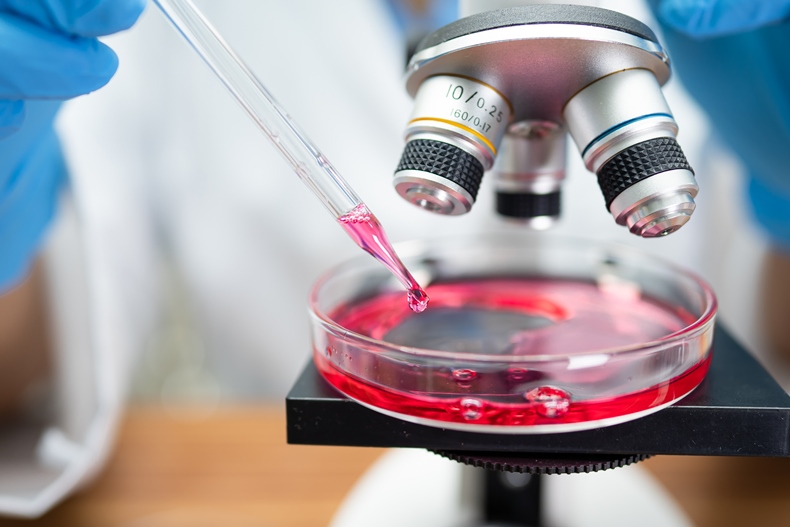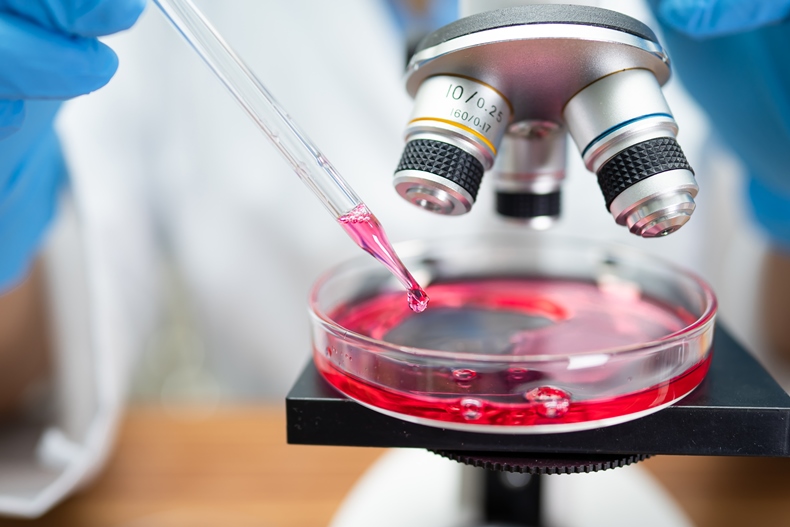
Over the past decade, researchers have begun to look more closely at the potential therapeutic value of placental cells. The placenta contains many cells with potential value, including hematopoietic stem cells (HSCs), mesenchymal stem cells (MSCs), amniotic cells, growth factors, cytokines, epithelial cells and endothelial cells.
The renewed focus on the placenta has already delivered benefits with several ground-breaking discoveries. In this post, we are going to highlight 4 of the most exciting breakthroughs using placenta stem cells which have been made recently.
Arthritis
The mesenchymal stem cells found within the placenta are of particular interest to researchers working in the field of regenerative medicine. That’s because they are multipotent cells, that are capable of differentiating into specialised cells like bone cells, cartilage cells, muscle cells, neural cells, skin cells, and corneal cells.
MSCs also have anti-inflammatory capabilities, which makes them useful for treating inflammatory diseases like osteoarthritis and rheumatoid arthritis.
A paper published in 2019 confirmed that MSCs can lessen the symptoms of rheumatoid arthritis progression. The researchers found that a transfusion of MSCs may be the perfect option for controlling T Cell response and reducing inflammation that triggers certain forms of arthritis.
They also noted that MSCs may be useful for treating several other types of autoimmune disorders.
____________
Read More:
Successful Placenta Stem Cell Transplant Stories
Placental Cells: Benefits and Future Uses
Placenta Banking: How Does It Work?
____________
Placenta-Based Cell Therapy For Coronavirus Patients
Researchers have been racing to develop treatments for COVID-19 since the virus was discovered in 2019. One of the most exciting breakthroughs has come from a team of Israeli researchers.
They have developed a placenta-based stem cell therapy which they believe reduces the symptoms of COVID-19. The treatment, developed by a company named Pluristem Therapeutics, has already been tested on a small group of patients.
The six participants enrolled in this initial study all had severe acute respiratory failure and inflammatory complications caused by COVID-19. Four of the patients were also experiencing signs of cardiovascular and kidney failure.
A week after receiving a placenta-based stem cell treatment, all six patients were still alive. Four of the patients had experienced a significant reduction in symptoms and three were being weaned off their ventilators.
The treatment uses mesenchymal stem cells, which be obtained from the placenta or from umbilical cord blood. This type of stem cell helps to regulate the immune system, which reduces the worst impacts of COVID-19.
Researchers are planning a larger scale study to further investigate the benefits of using MSCs to treat COVID-19.
{{cta(‘924954d5-8fa6-4ba7-85fd-36b883ec14ac’)}}
Type 2 Diabetes
Researchers have discovered that amniotic stem cell transplantation therapy can improve glycemic control within patients who have type 2 diabetes. This can reduce the symptoms of diabetes, helping patients avoid the worst symptoms of the condition.
The therapeutic value of placental cells for treating diabetes was initially confirmed by a study in China, which used placenta-derived mesenchymal stem cells to treat the condition. Since then, several other studies have also confirmed that stem cells could improve insulin sensitivity and reduce diabetes type 2 symptoms.
Brain Injuries
In 2018, a team of researchers from Italy and the United Kingdom published a meta study which assessed if placenta-derived cells could treat acute brain injuries resulting from ischaemic/hemorrhagic or traumatic damage.
They looked at several clinical trials which tested the capacity of placenta stem cells for treating brain injuries. In one of the trials, transplanted groups had an improvement in sensorimotor function 1 week after receiving a transplant.
They also found that the stem cells migrated selectively to the hemorrhagic area in the brain, before beginning to heal the brain. The test subjects had fewer lesions compared to a control group.
There were also positive results in terms of inflammation of the brain and neurogenesis. This study highlighted several promising research papers that looked at the efficacy of placental cells.
These four ground-breaking trials are just a sample of the ongoing research into placental cells. Click here to learn more about the potential of placental stem cells or speak to one of our specialists at +971 4 3116613.
Sources
https://www.frontiersin.org/articles/10.3389/fimmu.2020.01091/full
https://www.ncbi.nlm.nih.gov/pmc/articles/PMC6477064/
https://pubmed.ncbi.nlm.nih.gov/28006991/
https://www.ncbi.nlm.nih.gov/pmc/articles/PMC6434489/
{{cta(‘a30cec0a-5bde-4167-9d35-9d42b560ca18’)}}


